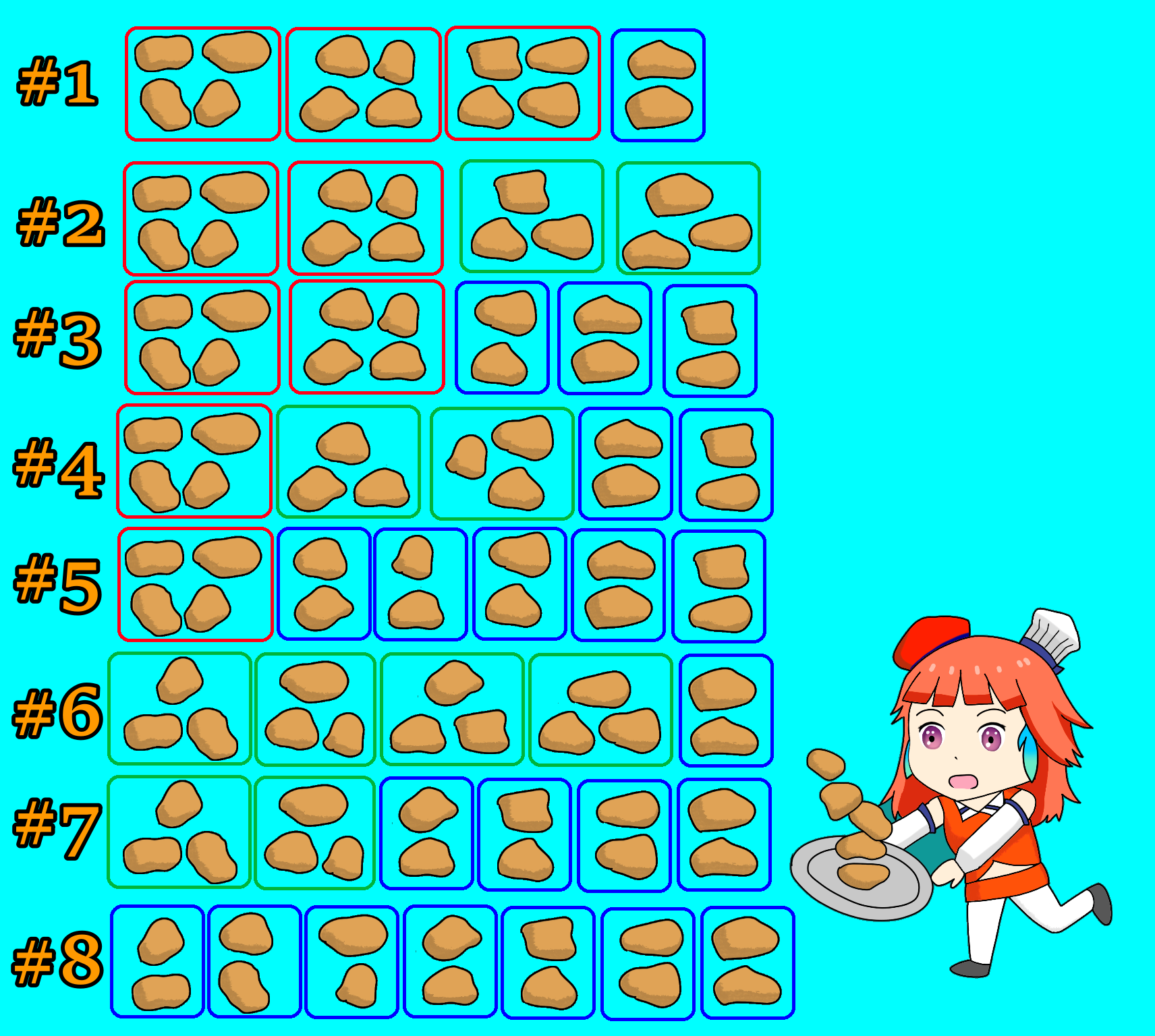| # | Problem | Pass Rate (passed user / total user) |
|---|---|---|
| 13631 | Nugget Frenzy |
|
| 13693 | Domo sonnan ja dame |
|
Description
Kiara is a fast food shop owner. Today, she made too many chicken nuggets. She only has boxes with k different sizes that can contain a1, a2, … ak nuggets respectively. She wants to put all n nuggets into boxes without any excess nuggets. Please help her determine how many ways she can pack the nuggets.
For example, if she has 14 nuggets and boxes of 3 sizes: for 2, 3, and 4 nuggets, there would be 8 ways to pack the nuggets.

Input
The first line contains two positive integers n and k. (1 ≤ n ≤ 107, 1 ≤ k ≤ 20)
The following line contains k numbers, the number of nuggets that could be packed inside each box. It is guaranteed to be in a strictly increasing order between 1 and n, which means 1 ≤ a1 < a2 < a3 < ... < an ≤ n.
Output
The number of the way to pack the nuggets without any leftovers. Please print a '\n' character at the end.
Sample Input Download
Sample Output Download
Tags
Discuss
Description

Domo is a very smart dog. He also likes trolling people. One day, his teacher announced that only non-programmable calculators are allowed during the test, so he modified his non-programmable calculator into a programmable one. Knowing about his plan, you decided to give him a lesson by making it calculate prefix expressions instead of infix expressions.
Hint: Here are some functions you might want to use
int ungetc(int char, FILE *stream)
This is a function to return the character c to the stream. It is the opposite of int getc(FILE *stream). Try running this code for reference.
#include <stdio.h>
int main() {
double f;
char c;
//to get the character c from the input stream
c = getc(stdin);
//uncomment the function below and see what will happen
//ungetc(c, stdin);
scanf("%lf", &f);
printf("char: %c\ndouble: %lf\n", c, f);
}
double atof(const char *str)
This is a function for converting a string str to a double-precision floating point. It is included in the <stdlib.h>.
#include <stdio.h>
#include <stdlib.h>
int main() {
//this is a string
char flt[] = "3.141593";
//now this is a double
printf("%lf", atof(flt));
}
Input
There will be only one line of an expression in prefix notation, which contains no more than 10,000 non-negative double-precision floats and operators +, -, *, or /. There will be a space after every number and operator.
Output
The result of calculation in 4 decimal place precision with a trailing '\n'. You can use %.4lf to achieve this.